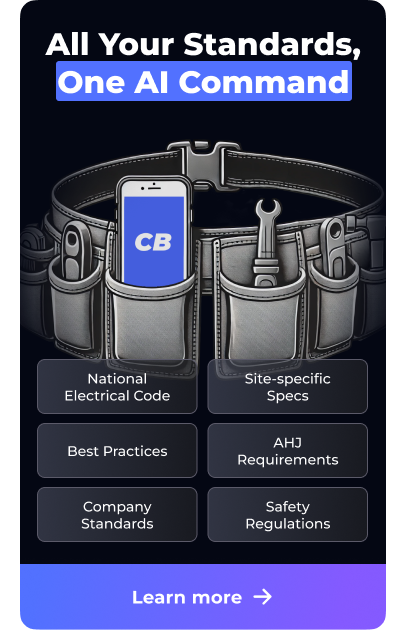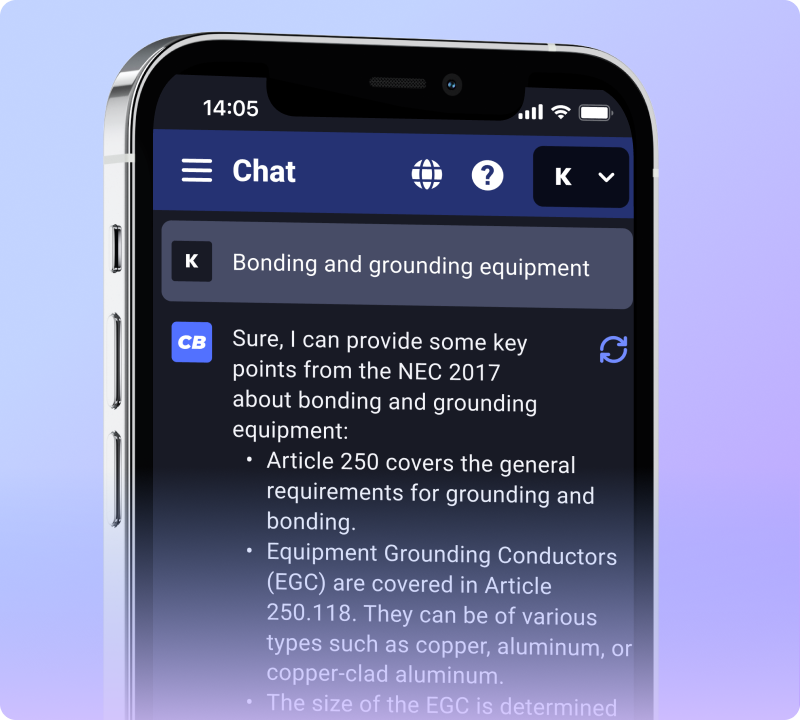Keeping up with the latest electrical codes can be tricky. The Tennessee Electrical Code 2017 edition has some new rules you need to know. Our blog will walk you through these updates and requirements, making sure you’re in compliance.
Stay informed and avoid costly mistakes.
Key Takeaways
- The Tennessee Electrical Code’s 2017 edition requires permits and inspections for all electric signs to enhance safety.
- New regulations now mandate guarded covers for light fixtures in crawlspaces of dwelling units, reducing the risk of damage.
- Chattanooga has introduced updates allowing power transfers from electric vehicle batteries to residential wiring and enhanced surge protection requirements.
- Compliance with both local and national safety codes, including the NFPA 70, 2017 Edition, is necessary for all electricians in Tennessee to ensure safe installations.
- Non-compliance with the Tennessee Electrical Code can lead to fines or legal action due to increased risks of fire hazards and electrical failures.
Overview of the Tennessee Electrical Code 2017 Edition
The Tennessee Electrical Code 2017 Edition outlines the state’s electrical regulations. It introduces essential changes that enhance safety and ensure compliance for all electrical installations.
Adoption info
Tennessee adopted the 2017 edition of the Electrical Code, based on NFPA 70, 2017. This update includes several amendments and additions that electricians must follow. Notable changes involve the requirement for permits and inspections for all electric signs.
Significant revisions also address light fixtures in crawlspaces, which must have guarded covers. Understanding these updates ensures compliance with Tennessee electrical regulations and enhances electrical safety standards.
Electricians should stay informed about the latest code changes and inspection requirements to maintain high safety standards in their work.
Changes and updates to the code
The Tennessee Electrical Code 2017 introduces several important changes and updates. This code is based on the NFPA 70, 2017, with specific amendments tailored for Tennessee. Permits and inspections are now mandatory for all electric signs.
This requirement ensures safety and compliance with local standards.
Light fixtures in all dwelling unit crawlspaces must have guarded covers to protect against damage. In Chattanooga, new regulations allow for transferring power from electric vehicle (EV) batteries to residential wiring.
Enhanced surge protection requirements in Chattanooga aim to safeguard sensitive equipment. Electricians must stay informed about these updates to ensure compliance with the electrical code regulations.
Importance of knowing and following the code
Understanding the changes and updates to the code is essential for electricians. Knowing and following the Tennessee Electrical Code ensures safety and compliance. The 2017 Tennessee Electrical Code is based on NFPA 70, 2017.
It regulates various aspects, including electrical permits and inspection requirements. Following these rules protects both the electrician and the homeowner.
Failure to comply can lead to serious consequences. In Tennessee, all electric signs require permits and inspections. Light fixtures in dwelling unit crawlspaces must have guarded covers.
New regulations in Chattanooga regarding electric vehicle (EV) batteries enhance safety for residential wiring. By adhering to standards, electricians maintain credible electrical code compliance and avoid legal issues.
Understanding the Requirements and Standards of the Tennessee Electrical Code
The Tennessee Electrical Code sets clear standards for safety and compliance. Electricians must grasp these requirements to ensure successful installations and meet legal obligations.
General requirements for wiring methods and materials
Wiring methods and materials must meet specific requirements in Tennessee. Nonmetallic-Sheathed Cable does not need to run through bored holes, according to the 2008 National Electrical Code.
The Tennessee Electrical Code 2017 incorporates these standards based on the NFPA 70, 2017, with amendments. Electricians should ensure compliance with local and national safety codes.
Proper installation and maintenance are crucial to prevent hazards. For example, all light fixtures in crawlspaces of dwelling units must have guarded covers. Following these electrical wiring standards protects both people and property.
Protection against physical damage
The Tennessee Electrical Code emphasizes protection against physical damage. Electricians must use appropriate materials to safeguard wiring systems. Installations should resist impact and stress.
Nonmetallic-Sheathed Cable does not require running through bored holes, reducing potential damage.
For underground installations, follow specific guidelines to prevent corrosion and deterioration. Protect equipment from harsh environments. In crawlspaces, light fixtures must have guarded covers.
Compliance with these standards ensures safety and reliability in residential electrical systems. Understanding electrical inspection requirements will help maintain proper conditions.
Underground installations
Underground installations require careful attention. Electrical codes specify guidelines to ensure safety. These installations must follow the Tennessee Electrical Code requirements.
Protect cables from damage when burying them. Use appropriate materials for underground wiring. Follow local regulations about burial depth and cable type to comply with standards.
Chattanooga has introduced specific changes regarding underground installations with electric vehicle (EV) battery transfers. This ensures safe connections to residential wiring. Understanding these updates can help electricians stay compliant and offer safe installations.
Next, we will explore the protection against corrosion and deterioration.
Protection against corrosion and deterioration
The Tennessee Electrical Code emphasizes protection against corrosion and deterioration. Electricians must ensure that equipment and materials can withstand harsh conditions. For example, TN regulations require that materials in underground installations resist corrosion.
Light fixtures in crawlspaces must have guarded covers to protect against moisture and damage.
Chattanooga has new regulations for surge protection. These rules help preserve sensitive equipment from electrical spikes. The code requires electricians to follow these updated guidelines to ensure safety and compliance.
Staying informed about these requirements aids in maintaining the integrity of electrical systems.
Proper use of equipment and materials
Using proper equipment and materials is essential for compliance with the Tennessee Electrical Code. Electricians should select materials that meet local and national safety codes.
For example, the code requires guarded covers for light fixtures in crawlspaces of dwelling units. Choosing the right equipment prevents damage and ensures longevity, especially in areas prone to corrosion.
Tennessee has specific electrical permit regulations that mandate inspections for all electric signs. Electricians must also stay updated on the 2023 National Electrical Code changes.
This edition recognizes 10-ampere branch circuits for certain power and lighting loads. Following these guidelines helps avoid costly mistakes and ensures safe installations.
Compliance with local and national safety codes
Electricians must comply with both local and national safety codes. The Tennessee Electrical Code 2017, based on the NFPA 70, incorporates changes from the National Electrical Code (NEC).
This includes new requirements for permits and inspections for all electric signs. Electricians should also understand specific regional updates, such as those in Chattanooga. This city has introduced regulations for transferring power from electric vehicle (EV) batteries to residential wiring.
Compliance with these codes helps ensure safety and reliability in electrical installations.
Following the Tennessee building codes is crucial. The updated NEC recognizes 10-ampere branch circuits for select power and lighting loads. Electricians can enhance safety by adhering to the enhanced surge protection requirements in Chattanooga.
Light fixtures in crawlspaces must have guarded covers to prevent accidents. Improper installation can lead to dangerous situations. Non-compliance may result in fines or project delays.
Electricians should stay informed about these important code compliance requirements.
Importance of proper installation and maintenance
Compliance with local and national safety codes leads to the importance of proper installation and maintenance. The Tennessee Electrical Code 2017 requires correct wiring methods and materials.
This code is based on the NFPA 70, 2017, and includes amendments that ensure safety. Proper installation reduces risks of electrical failures. Inspections and permits for all electric signs enhance safety measures.
Light fixtures in crawlspaces must have guarded covers to prevent accidents. Neglecting these standards can lead to serious consequences. In Chattanooga, new regulations for electric vehicle (EV) battery transfers emphasize safety.
Enhanced surge protection requirements also help preserve sensitive equipment. Electricians must understand these standards to maintain safe electrical system updates.
Consequences of non-compliance
Proper installation and maintenance of electrical systems protect lives and property. Ignoring the Tennessee Electrical Code can lead to serious consequences. For example, failing to secure permits and inspections for electric signs risks fire hazards and damage.
Light fixtures in crawlspaces must have guarded covers. Without these, water or pests can create dangerous situations.
Electricians face penalties if they don’t follow local and national safety codes. Non-compliance may result in fines or legal action. The 2017 Tennessee Electrical Code included crucial changes.
Following these updates ensures safety and reliability in residential wiring. Electrical code enforcement helps maintain high standards across the board.
Conclusion
Understanding the Tennessee Electrical Code is crucial for all electricians. Keeping up with updates ensures safe and efficient installations. The code outlines essential requirements and standards for electrical work.
Staying informed about these changes protects both workers and homeowners. Familiarity with the code fosters better practices and minimizes risks.
FAQs
1. What are the Tennessee Electrical Code Updates and Requirements?
The Tennessee Electrical Code Updates and Requirements refer to recent changes in the National Electric Code (NEC), residential electrical code, building construction codes, electrical equipment requirements, and electrician licensing.
2. How do I understand NEC code changes?
Understanding NEC code changes involves familiarizing oneself with revisions in the National Electric Code updates, amendments to residential wiring standards, and new specifications for electrical equipment.
3. Why are these updates important for an electrician?
These updates are crucial as they impact electrician certification processes and determine licensing requirements. They also set revised guidelines for electrical inspections and permits.
4. What is involved in the electrical permit process?
The electrical permit process requires compliance with updated building code requirements including adherence to new residential wiring standards as per NEC’s latest amendments.
5. How do these updates affect my home’s electricity setup?
Changes in the Residential Electrical Code or any other part of National Electric Code can influence your home’s electricity setup by changing standards for wiring and other components.





